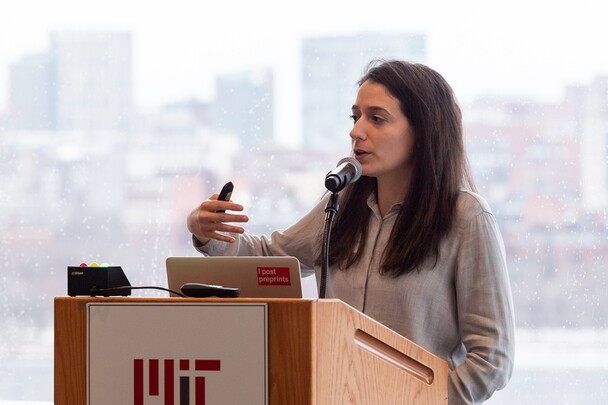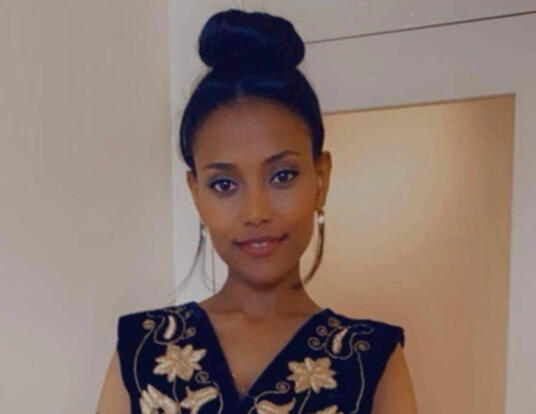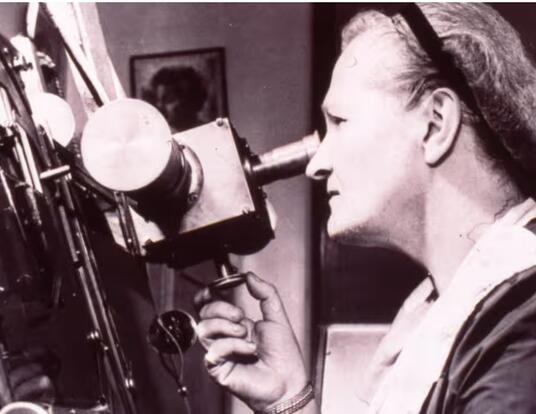Big Ideas about Microbes
Harvard Griffin GSAS Voices: Tami Lieberman, PhD ’14
Research at Risk: Since World War II, universities have worked with the federal government to create an innovation ecosystem that has yielded life-changing progress. Now much of that work may be halted as funding is withdrawn. Find out more about the threats to medical, engineering, and scientific research, as well as how Harvard is fighting to preserve this work—and the University's core values.
Throughout its 150th anniversary year, GSAS is foregrounding the voices of some of its most remarkable alumni and students as they speak about their work, its impact, and their experiences at the School.
Tami Lieberman is the Hermann L. F. von Helmholtz Career Development Professor at the Massachusetts Institute of Technology. As head of the Lieberman Lab, she studies the human microbiome, defined by the National Human Genome Research Institute as “the collective genomes of the microbes (composed of bacteria, bacteriophage, fungi, protozoa, and viruses) that live inside and on the human body.” Lieberman discusses the potential of microbial therapies, how female faculty members helped her cope with the pressures of being a woman scientist at GSAS, and the close-knit community that made her PhD work fun and engaging.
Thinking Futuristically
There are lots of bacteria and microbes that live in and on us. Some of them are beneficial. My lab tries to understand these microbial communities, their ecology, and how we can change them. We do this by analyzing the DNA of human microbes to see how they move about in our bodies and between people. We’re looking to establish rules and principles so we can lay the framework for future work in microbial biology.
This research has a lot of people thinking about how to work with microbial communities to improve our health. For example, we might find a microbe on our skin that lowers the risk of infection when we get a cut. The challenge is that our skin is already home to a dense microbial community, so if we did find this magic microbe and introduce it, there’s a good chance it wouldn’t take root.
Take probiotics—as many people do these days in the hope of addressing digestive or other concerns. There is some evidence that probiotics have a beneficial effect when you take them. But they are cultivated in fermenters and vats, which are different than the human body. Your gut has all these other microbes around. The data has shown that probiotics, for the most part, do not stick in your microbiome; if you stop taking them, they don’t repopulate in your body. My lab is trying to figure out how we can get probiotics to take root and become part of a stable community of microbes.
So, we’re thinking futuristically. Why shouldn’t we have a microbe that lives on our skin and has a sensor that detects sunlight and UV damage and, in response, secretes sunscreen? Shouldn’t there be a microbe that detects pathogens and releases toxins to kill them? We’re excited to learn the principles of engineering these microbial communities to bring about new therapies.

A Special Place to Learn and Grow
I went to college at Northwestern University, where I minored in math and majored in biology. Then I came to GSAS where I could fuse the different parts of my training in the Department of Systems Biology.
In my first year, though, I felt very nervous about being a woman in a male-dominated lab and program. In fact, the lab I joined was then comprised of only men. I felt kind of alone. At the same time, I thought I had to represent all women in every action I did.
Two female faculty members in the program, Associate Professor of Systems Biology Angela DePace and Novartis Professor of Systems Biology and now Department Chair Galit Lahav, got together and had a group where we could talk about these things as women in science. That helped me get through a doubtful time. I feel really grateful to the program and to Angela and Galit for that.
Beyond just that group, there was this wonderful sense of community during my time at GSAS that made it fun to come to work, engage, and get and give feedback from others. It was a very diverse, interdisciplinary, scientific environment. We also got together for happy hours and seminars. That made it easy to want to be in lab all the time. It was just a really special place to learn and grow. I am always seeking to emulate that community with the spaces I’m in now.
Get the Latest Updates
Join Our Newsletter
Subscribe to Colloquy Podcast
Simplecast





